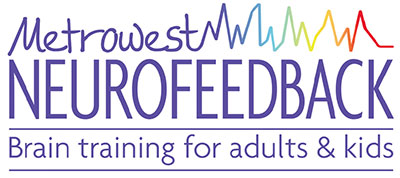Brain injury is quite common, whether sports-related or from other activities. Symptoms occur across the entire range of function, including physical, cognitive, emotional, and behavioral domains. Recent studies have shown that concussion is far more common and more dangerous for future health than previously understood. Both the medical and athletic communities are increasingly more aware of how to diagnose and treat concussion or traumatic brain injury (TBI). Still, it is important that parents and family members maintain a high level of vigilance whenever there has been a brain injury, as post-concussion treatment is important to recovery. It is now clear that:
- An athlete who has a history of just one concussion has an increased risk of being diagnosed with another concussion.
- Risk factors for recurrent concussion include history of multiple concussions, especially within 10 days after initial concussion.
- Ongoing symptoms, history of concussions, and younger age of the patient, have all been linked to longer recovery after a concussion.
The following is the symptom report of a 36 yr old man who came for neurofeedback seven years after a severe car accident, which left him in a profound coma with a GCS rating of 3. The Glasgow Coma Scale rates the depth of coma based on three aspects: motor response, verbal response, and eye opening. The lowest score on each is 1; his rating of 3 is a level often said to be “incompatible with life” (med-speak for recovery highly unlikely).
Still dealing with many TBI symptoms 7 years after the injury, he described the symptoms you see listed on the left of the graph. He rated the severity of all these symptoms at between an 8 and 10: slow thinking, poor short-term memory, compulsive behaviors, hyperactivity, difficulty with organization, stuttering, poor speech articulation, difficulty shifting tasks, poor word finding, difficulty thinking clearly, bruxism (teeth grinding), trouble shifting attention, stuttering, and fears.
After three months of twice weekly sessions, he rated all of his symptoms at either a one or zero.

Post-Concussion
Symptoms such as headache (migraine-type or other), dizziness or the often-described “brain fog” seem to be predictive of longer recovery, and must not be ignored. Studies suggest that sports-related concussions in children may lead to significant behavioral and emotional problems in the months following the injury.
Researchers have found a significant increase in somatic symptoms such as headache, abdominal pain, and dizziness, as well as an increase in withdrawal or depression, following concussion.
“Cognitive rest” is probably the most helpful strategy after a concussion. It is very important that a child not be sent back to either the playing field OR the classroom before her brain is ready. Researchers are beginning to note the deleterious effect of coping with the demands of academics, not just athletics, on recovery from concussion.
Common Symptoms of Concussion & Traumatic Brain Injury (TBI)
Physical Difficulties
- Fatigue
- Sleep disturbance
- Headaches
- Dizziness
- Nausea and vomiting
- Blurred vision
- Hearing problems
- Loss of sex drive
Cognitive (Thinking) Problems
- Distractibility
- Disorientation
- Amnesia (temporary)
- Memory loss
- Short-term memory loss
- Poor judgment
- Slow thinking
Emotional Difficulties
- Depression
- Agitation
- Apathy
- Irritability
- Anxiety
- Fear of “going crazy”
- Frustration or anger
- Guilt or shame
- Feelings of helplessness
Behavioral Issues
- Irritability
- Confrontational attitude
- Explosive temper
- Fearfulness
- Impatience
- Thoughtlessness
